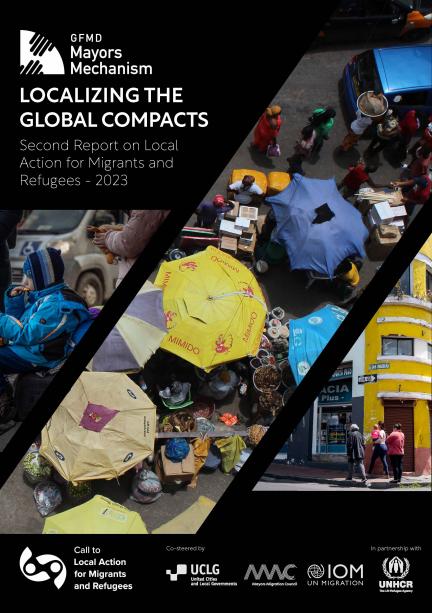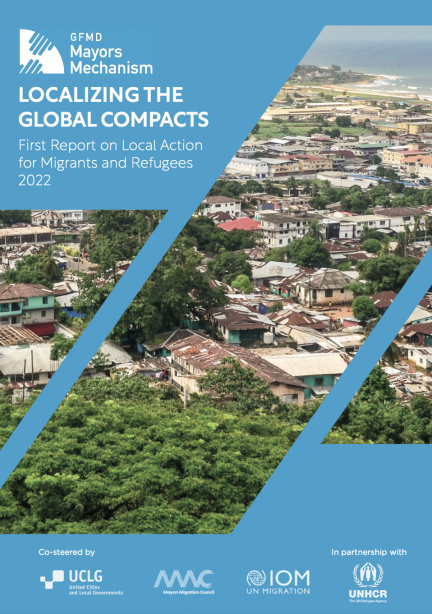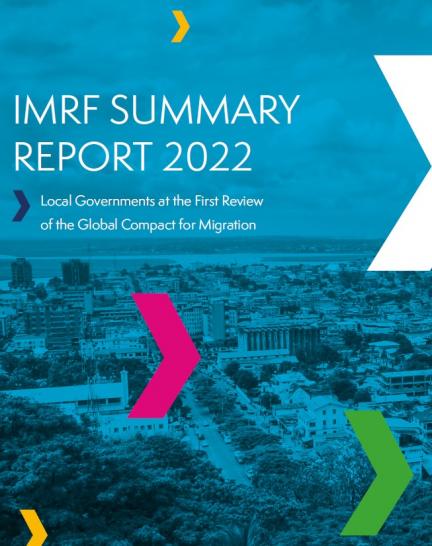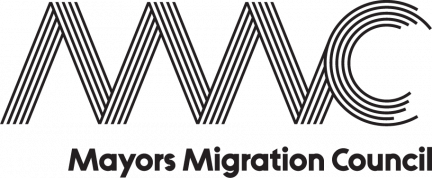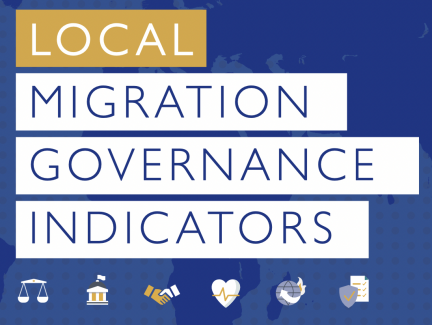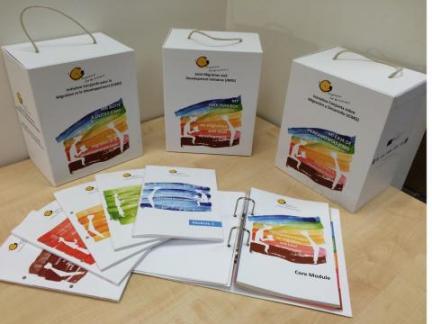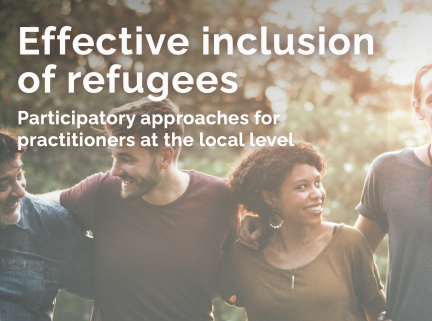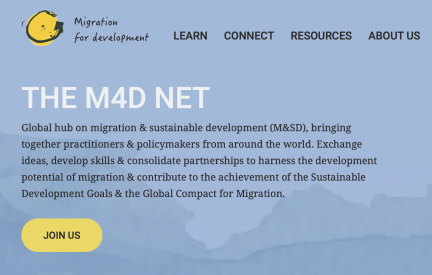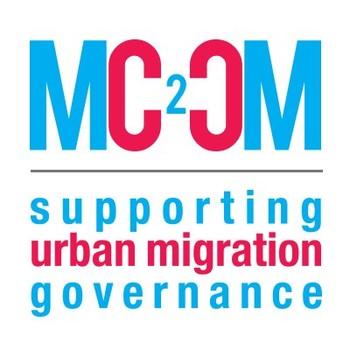Resources
Welcome to the Call to Local Action for Migrant and Refugees space for resources. Here you find the different editions of our Call to Local Action flagship publication, as well as information and reports that help shape our collective work.
Flagship Report on Local Action for Migrants and Refugees
Our Flagship Report on Local Action for Migrants and Refugees seeks to inspire cities, national governments and partners by highlighting local governments’ progress in implementing the Global Compacts and by spotlighting the local pledges that have been collected so far. It provides background and context and offers opportunities to turn local action into global impact.
2023 Edition
The second edition of the Report on Local Action has been delivered by local and regional governments at the 2023 Global Refugee Forum (GRF) and presents over 50 new pledges that help achieve the migration and refugee compacts in unison.
First International Migration Review Forum (IMRF) Report
This report provides a summary of local and regional governments’ (LRGs) engagement at the 2022 International Migration Review Forum (IMRF) and their road towards greater inclusion.
Other resources
Global Cities Fund for Migrants and Refugees
The MMC’s Global Cities Fund for Migrants and Refugees (GCF) responds to the unmet needs of cities as they support migrants, refugees, and internally displaced people in the face of pressing challenges, from global pandemics to the climate crisis. By directly funding cities to implement inclusive programs of their own design, the GCF builds precedents of fiscal feasibility in city governments that are often disregarded by donors with low risk tolerance. The GCF is supported by the Bernard van Leer Foundation, the Conrad N. Hilton Foundation, the IKEA Foundation, Open Society Foundations, and the Robert Bosch Stiftung. It is led by the MMC in partnership with six key Strategic Partners: the C40 Cities Climate Leadership Group, the UN Migration Agency (IOM), Metropolis, United Cities and Local Governments (UCLG), the United Nations Human Settlements Programme (UN-Habitat), and the UN Refugee Agency (UNHCR).
Local Migration Governance Indicators Framework
In 2018, IOM created the Local Migration Governance Indicators (Local MGI) to support local governments take stock of the migration policies and strategies they have in place. Based on 80+ indicators, local governments can have an introspective look at the policies, programmes, and structures they have in place to manage migration. To date, more than 50 local governments worldwide have applied the Local MGI. Interested in participating? Write: mgi@iom.int.
My JMDI E-course
This e-learning course, developed by the Joint Migration and Development Initiative (JMDI) is a free, flexible and comprehensive e-course for stakeholders working on migration and development at the local level on how to better manage migration. The course was developed by the International Labour Organization (ITC-ILO) based on the JMDI’s training tools ‘My JMDI Toolbox’.
Refugee Inclusion Toolkit
In April 2022, the UNHCR and the Migration Policy Group (MPG), released the toolkit: “Effective inclusion of refugees: Participatory approaches for practitioners at the local level.” The toolkit provides practical guidelines and communication materials for the running of integration and inclusion practices, helping local actors to build participatory approaches in their respective towns.
General knowledge platforms
Migration 4 Development (M4D Net)
The M4D Net is the global hub on migration and sustainable development which shares good practices, latest research and knowledge from real practical experiences at the local, national and global levels. The M4D Net is an interagency, multi-stakeholder platform open to all and managed by IOM.
Programmes and projects
Mediterranean City-to-City Migration Project
The Mediterranean City-to-City Migration (MC2CM) project reflects cities’ central role in the integration of migrants. Initiated in 2015 by the UCLG, the International Centre of Migration Policy Development (ICMPD), and UN-Habitat, the project brings together city leaders, public officials, and multi-disciplinary experts from 22 participating cities across North Africa, Middle East and Europe.
